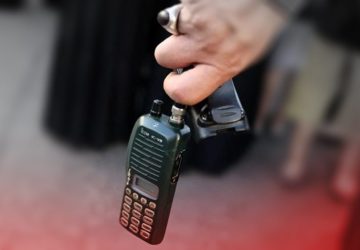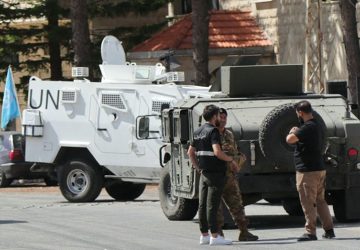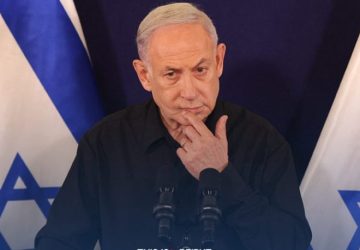Diplomatic pressure mounted Monday to avoid an escalation between Iran and Israel following high-profile killings that have sent regional tensions soaring, while numerous governments urged their citizens to leave Lebanon.
Israeli Prime Minister Benjamin Netanyahu said late Sunday that his country was “determined to stand against” Iran and its allied armed groups “on all fronts”.
As its war against Hamas in Gaza nears its 11th month, Israel has been bracing for retaliation from the Tehran-aligned “axis of resistance” for the assassinations of two senior figures.
Palestinian armed group Hamas’s political leader Ismail Haniyeh was killed in Tehran on Wednesday in an attack blamed on Israel, which has not directly commented on it.
The killing came hours after an Israeli strike on Beirut left Hezbollah military chief Fuad Shukr dead.
Tehran said Monday that “no one has the right to doubt Iran’s legal right to punish the Zionist regime” for Haniyeh’s killing.
US Secretary of State Antony Blinken told his counterparts from the G7 nations in a conference call on Sunday that any attack, which he expected to be a joint undertaking between Hezbollah and Iran, could happen within 24 to 48 hours, as early as Monday, US news site Axios reported.
Blinken asked his counterparts to place diplomatic pressure on Tehran, Hezbollah and Israel to “maintain maximum restraint”, it added.
Israel’s military spokesman Rear Admiral Daniel Hagari said on Sunday night that “as of now there is no change” in its policy for protecting civilians.
In the northern port city of Haifa, shop owner Yehuda Levi, 45, told AFP that Israelis are used to conflict, but facing a multi-pronged attack “is a little tricky”.
“It’s difficult, but we believe we’re a strong country. We’re going to win this war.”
‘Path of dialogue’
Experts and diplomats fear that the expected attack on Israel could rapidly spiral into a regional war.
The United Nations’ rights chief Volker Turk called on “all parties, along with those states with influence, to act urgently to de-escalate what has become a very precarious situation”.
Italian Foreign Minister Antonio Tajani, whose country currently holds the rotating G7 presidency, said in a statement: “We call on the parties involved to desist from any initiative that could hinder the path of dialogue and moderation.”
On Sunday, Jordan’s Foreign Minister Ayman Safadi made a rare trip to the Iranian capital during which he delivered a message from King Abdullah II to President Masoud Pezeshkian.
Jordanian “airspace will probably be a theater for missiles and anti-missile” fire in any direct Iranian-Israeli clashes, but Amman would strongly object to violations of its sovereignty, said political analyst Oraib Rantawi.
“The Iranians must find other ways to spare Jordan this embarrassment,” Rantawi, director of the Amman-based Al Quds Center for Political Studies, told AFP.
Tehran has said it expects Hezbollah to hit deeper inside Israel and no longer be confined to military targets.
Israel’s ally the United States said it was moving additional warships and fighter jets to the region.
US President Joe Biden was scheduled to meet with his national security team later Monday “to discuss developments in the Middle East”, the White House said.
With AFp





